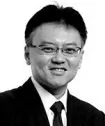Executive Summary
Japanese companies, branches, and subsidiaries incorporated or registered in Singapore may face novel challenges when complying with the new requirement to maintain a register of "registrable controllers"1.
While the register will not be publicly disclosed, it must be kept at either the company's registered office in Singapore, or the registered filing agent's registered office, and disclosed to the relevant authorities upon request. The grounds justifying disclosure are set out in the law and may involve investigations related to money laundering and terrorism funding. Non-compliance attracts a fine of up to S$5,000.
The requirements to be considered a "registrable controller" are somewhat vague and, consequently, compliance with the requirement could be onerous for companies. Companies should keep the following guidelines in mind:
- Registrable controllers include not only substantial shareholders, but also persons who are directly or indirectly exercising significant influence or control over a company.
- A representative director of a Japanese company who has individual and independent decision-making and executive power under the Companies Act of Japan may be considered a registrable controller of a Singapore wholly-owned subsidiary – in particular if he has the power to significantly influence, directly or indirectly manage, and/or control the Singapore subsidiary.
- A retired founder of a family-owned holding company in Japan may also qualify as a registrable controller even if he is not a director, is acting as a non-executive director, is a minority shareholder, or does not even hold any shares. The relevant question is whether the individual retains significant influence over the decision-making of the company, branch or subsidiary registered in Singapore.
The company must identify individuals who are reasonably believed to be registrable controllers, notify these parties of their status, and obtain their confirmation that they are indeed registrable controllers. The company must then record the particulars of these registrable controllers – including their full name, residential address, nationality, date of birth, and the date when they became a registrable controller. The person receiving said notice has 30 days to respond to the request and must also identify any other registrable controller besides himself/herself.
A new Singaporean company, subsidiary or branch must keep a register of its registrable controllers within 30 days from its incorporation or registration. Existing companies had 60 days after 31 March 2017 to establish the register. Not only must new registrable controllers be added to the register, but it is also necessary to record the date on which a registrable controller ceased his or her control.
Accordingly, the register of registrable controllers must be updated regularly during the post-incorporation period. For example, a newly-established Japanese company will often name a temporary director in Singapore during the incorporation phase, until the employment pass (EP) for the resident director (e.g., a Japanese expatriate, relocating to Singapore) is approved. The resident director will be confirmed upon EP approval and the capital injection to the new Singapore company may also follow thereafter – leading to further changes to the board and shareholders, all of which must be reflected in the register.
Registrable controllers must notify the company of a change in particulars. If this notification does not take place, but the company has reasonable grounds to believe the change has occurred, it must notify (in the prescribed form) that registrable controller to confirm if the changes had indeed occurred. Once the changes are confirmed by the registrable controller in question, the company must update the register of registrable controllers within 2 business days. Given that the timeline is rather short, companies must be vigilant of updating the register promptly.
Challenges may arise when obtaining the particulars of a registrable controller in a timely manner. For example, registrable controllers residing in Japan may not be aware of the legal requirements in Singapore, and may hesitate to provide what they consider to be sensitive information. Additionally, they may not be conversant in English or may be difficult to contact directly. Other delays could arise when translating notification documents, supporting documents, and responses from Japanese into English (and vice-versa).
Japan-based staff should be prepared to liaise closely with Singapore-based managerial and administrative staff, the company secretarial agent in Singapore, and the registrable controllers in Japan. Furthermore, Singapore-based staff should understand these new requirements in depth, work to facilitate communication, and provide close guidance to registrable controllers to ensure the register is completed within the prescribed timeframe.
For the full Japanese article, please click here.
Footnote
1. Certain companies are exempted from this new requirement. Such companies are set out in the Fourteenth and Fifteenth Schedule of the Companies Act (Chapter 50) of Singapore.
Dentons is the world's first polycentric global law firm. A top 20 firm on the Acritas 2015 Global Elite Brand Index, the Firm is committed to challenging the status quo in delivering consistent and uncompromising quality and value in new and inventive ways. Driven to provide clients a competitive edge, and connected to the communities where its clients want to do business, Dentons knows that understanding local cultures is crucial to successfully completing a deal, resolving a dispute or solving a business challenge. Now the world's largest law firm, Dentons' global team builds agile, tailored solutions to meet the local, national and global needs of private and public clients of any size in more than 125 locations serving 50-plus countries. www.dentons.com.
The content of this article is intended to provide a general guide to the subject matter. Specialist advice should be sought about your specific circumstances.


